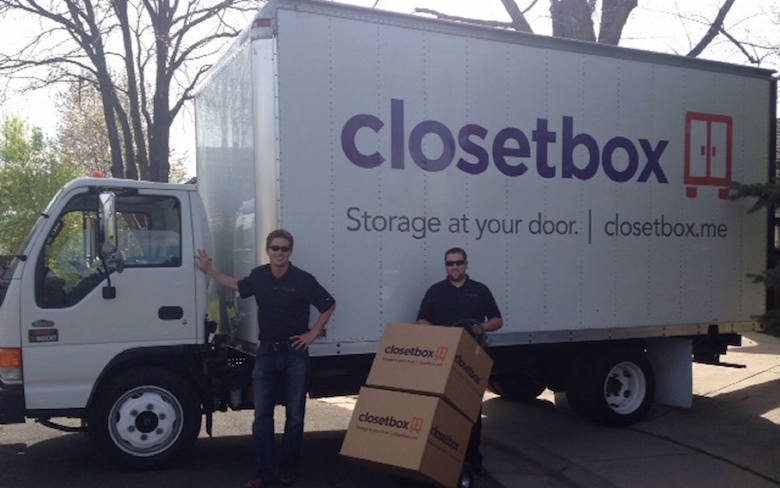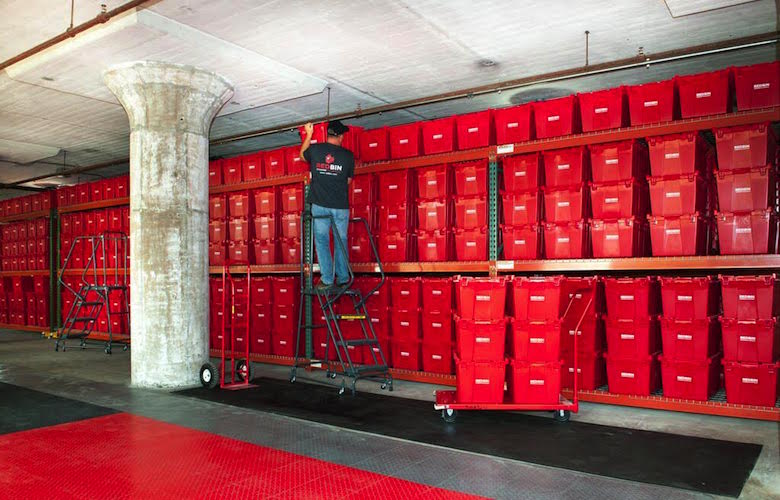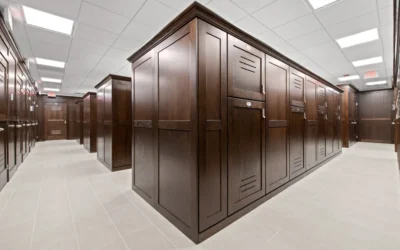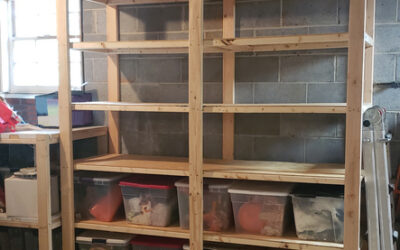Denver-based Closetbox faces a pleasant problem, according to CEO Marcus Mollmann: “It’s keeping up with the demand for our service.”
Mollman, 39, launched Closetbox in the spring of 2014. The company, which offers monthly storage with home pick up included, has expanded to 20 locations nationwide, including Seattle, San Francisco, Los Angeles, Houston, Atlanta, Indianapolis, Cincinnati and more. The workforce includes 20 people in Denver and a combined 35-40 elsewhere.
“We were pulled into other markets by customers who found out about us here and wanted our service,” said Mollmann, who has investors and partners.
“Also, we realized there are a lot of markets similar to Denver that had plenty of available space but dense locations, and communities where there wasn’t a large supply of storage,” Mollmann said.

Closetbox CEO Marcus Mollman said a lack of storage facilities in urban areas has created a need for his company’s service.
Filling an urban need
Closetbox roped in almost $2 million in new funding from 21 investors in October.
Mollmann, whose background is in buying and redeveloping real estate, noted that 80 percent of the U.S. population but only 32 percent of storage facilities are in urban areas. Plus, living units are shrinking as builders try to squeeze in more people. Those factors create more business for Closetbox and its competitors.
“We make it easier to store with Closetbox than to take the dresser you don’t need and moving it down to the basement,” Mollmann said. “You’re going to get hurt, going to damage the furniture. It’s easier to store with us than it is to store it in your basement.”
Closetbox has a 25,000-square-foot warehouse in north Denver that can store 75,000 to 85,000 square feet, and it serves Denver, Boulder and Fort Collins.
“It’s equivalent to nearly a 1,000-unit storage facility,” Mollmann said.
He owns two trucks for pickup and delivery, and rents more when needed.
Competitive offering
Closetbox charges $150 per month for a 10-foot-by-10-foot space, $108 for a 5×10 and $70 for a 5×5. Customers only pay for the amount of space they actually use.
“We try to match the cost of the most convenient self-storage units in the market,” Mollmann said.
Customers can make an appointment to pick up items from their units or pay for delivery to their homes, with 48 hour notice. His customers are homeowners and renters with extra furniture, household items and boxes that lack space for them. Businesses with extra inventory also are customers.
“We give them a virtual warehouse leading up to Christmas, or any time they have excess inventory,” Mollmann said.

Closetbox offers competitive prices with traditional self-storage, with the added benefit of free pick up.
Taking the self out of self-storage
Like customers of traditional self-storage, his customers are dealing with difficult circumstances, such as a divorce or a death in the family, or a friend is moving out. Others need to store household items because they’re staging their home to impress potential buyers.
Unlike customers that prefer the DIY approach, Closetbox attracts people that don’t have time to rent a truck, lack the equipment needed for moving, or don’t want to burden friends by asking them to help.
“We help people avoid those expenses, avoid that hassle and avoid inconveniencing their friends, and I think it’s resonated with customers who are in a situation where they need help storing their belongings, not just a space,” Mollmann said.
Part of a growing trend
He entered this business in spring 2014 after dealing with his own space crisis. He and his wife, Katy, had two children and were expecting twins, and they needed space for a playroom and another bedroom. Neither of them could carry the items to a self-storage unit, and he was uncomfortable asking friends for help.
This business segment is known by many names: valet, bin, on-demand, boutique, personalized and full-service -– all followed by the word “storage.”
Among the major players are Clutter, a Los Angeles-based moving and storage company that started operating in the New York-New Jersey area in September. Make Space, which started in the New York market, has expanded to Washington, D.C., and Chicago. Other players include Fetch Storage in Boston and Red Bin in Brooklyn, N.Y. Some, such as Remote Garage in San Antonio and Stow & Co and New York City, have ceased operations after operating briefly.
German company Rocket Internet AG launched SpaceWays in London, and since has added Chicago, Paris, Toronto and Sydney.
These companies cater to people with small living spaces who also may lack a car. They also offer helpful technology, such as mobile applications, so customers can request and track services.
Customer perspective
Steve Gore of Denver and his girlfriend hired Closetbox when they decided to consolidate two homes into one. He stored a dining room table, living room items, kitchen items and a television.
“They were punctual, friendly and clearly took care that they didn’t bang the stuff on the door frame,” Gore said, adding that Closetbox was able to supply him with an online list of the stored items later that day.
“I had a really good experience with them,” said Bryce Eigzmann, a Closetbox customer in Denver.
Eigzmann said he was pleasantly surprised when Closetbox brought him extra boxes.
“I got way more than I paid for that service,” he said.








